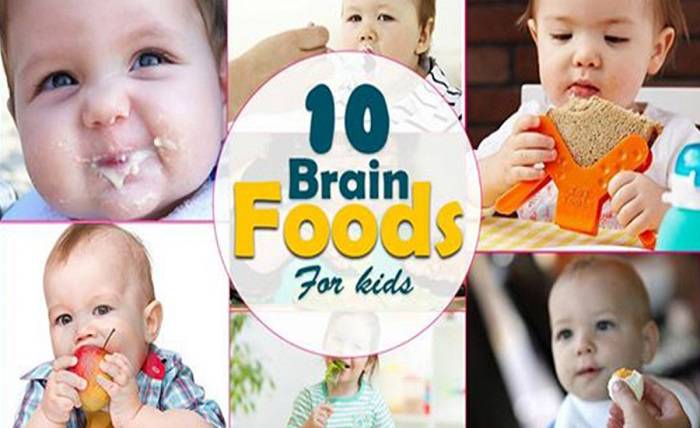Good Food For Baby’s Brain

Studies of the relationship between food and mental health have demonstrated that diets containing high amounts of saturated fat decrease molecular substrates for cognitive processing and are associated with an increased risk of neurological dysfunction. While this evidence suggests that diets high in saturated fat may affect cognition, further research is needed to understand the mechanisms and conditions under which such dietary components might have therapeutic benefits in humans. In the meantime, this research provides important guidance for individuals concerned with their diets.
Protein is a critical nutrient for early brain development, and DGAs recommend a range of protein-rich foods for children, including seafood, lean meats, eggs, nuts, seeds, and soy products. The brain needs plenty of amino acids, so it is crucial to include protein in the diet. Protein should make up 20 percent of the average adult’s diet, while children between three and five should consume 3-5 ounces of protein daily.
Snacks containing fats can be a delicious way to add nutrition to your diet. Add nuts, nut butter, and dried fruit to your favorite cereals for a healthy snack or dinner. Whole-grain bread is essential for sandwiches. In addition to whole-grain bread, substitute white bread and potato chips for healthier alternatives. This will add some extra fiber to your diet. A good choice for a snack is a banana.
Some people believe that fruit should not be part of the first foods a baby eats, but fruit is actually a great source of nutrients for babies. Bananas, for example, contain amylase, an enzyme essential for digesting carbohydrates. Furthermore, bananas are also an excellent source of vitamin B6 and magnesium. A ripe banana can be mashed easily or blended with a little avocado. A good combination of banana and avocado is recommended for babies.
While saturated fats are essential for your diet, other forms of fat are not. There is a difference between essential and nonheme iron. Nonheme iron is found in meat and vegetables. It is necessary for building cells, the brain, and the nervous system. Besides nuts and vegetables, you can also include beef and spinach in stir-fries to get your daily serving of iron. They are also excellent sources of vitamin C. So, the next time you are planning your lunch, take a few minutes to read this article!
A good way to increase the amount of protein in your child’s diet is to introduce whole-grain cereal. These cereals are packed with nutrients, but they should be ground into a fine powder. You can mix them with breast milk or water. Whole grains are rich in fiber and protein, and they contain cholesterol, which is essential for the outer lining of brain cells. Egg yolks are another good source of fat-soluble vitamins and are also great sources of vitamin B12.
For healthy brain development, a baby needs omega-3 fatty acids, such as DHA. Fortunately, salmon is a delicious source of DHA, and can be made into a puree. It can also be turned into nuggets or burgers. It can also be offered as finger foods. These foods are rich in antioxidants and help to protect the brain from stress and promote learning. However, some pediatricians don’t recommend introducing yogurt to a baby before nine months of age.



